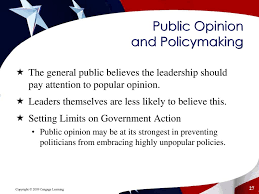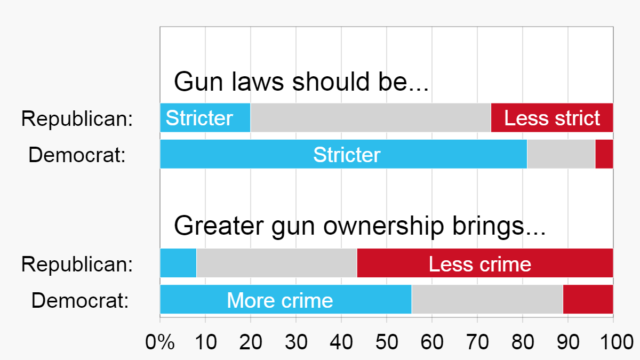How Gun Control Laws Influence US Politics
Gun control laws have been a hot topic in the U.S. for many years. These laws, which regulate the use, sale, and ownership of firearms, often spark heated debates among politicians, citizens, and advocacy groups. Understanding how gun control laws shape U.S. politics can help us see why this issue is so divisive. In this blog, we will explore the key aspects of how gun control laws influence American politics and how they affect public opinion, elections, and government policies.
The History of Gun Control in the U.S.
Gun control has deep roots in U.S. history, going back to the Second Amendment, which gives Americans the right to “keep and bear arms.” However, over the years, the government has passed many laws to regulate firearms for safety reasons. Major events, like assassinations, mass shootings, and violent crime rates, often lead to new laws or changes in existing regulations.
For example, in 1934, the National Firearms Act was passed to regulate machine guns and sawed-off shotguns. In 1968, the Gun Control Act introduced more restrictions after the assassinations of figures like President John F. Kennedy and Martin Luther King Jr. These laws responded to public fears about safety but also started long-lasting debates between those who want stricter gun laws and those who defend the Second Amendment.
Understanding this history shows how gun control has always influenced politics, with each new law bringing new discussions and divisions among political leaders and the public.
The Role of Political Parties in Gun Control Debates
In U.S. politics, gun control is often seen as a partisan issue. The Democratic Party typically supports stricter gun control laws, believing that these measures can reduce gun violence and make communities safer. On the other hand, the Republican Party generally defends gun rights, arguing that any restriction on firearms infringes on the constitutional rights of Americans.
This division between parties can create strong political battles, especially during election times. Candidates often use gun control as a major talking point in their campaigns. For Democrats, promoting stricter laws can win them support from voters who want to reduce gun violence. Republicans, on the other hand, often focus on protecting gun rights to gain support from those who fear that stricter laws would take away their freedom.
As a result, gun control has become a defining issue for both parties, and their positions on this topic influence not just laws but also the overall direction of U.S. politics.
Public Opinion and Its Impact on Policy Making

Public opinion plays a major role in shaping gun control laws. After tragic events like mass shootings, many Americans call for stronger gun control laws to prevent future tragedies. For example, after the Sandy Hook Elementary School shooting in 2012, there was a huge demand for stricter gun regulations, especially regarding background checks and assault weapons.
Politicians often respond to this shift in public opinion, introducing bills or supporting new laws that reflect what the people want. However, public opinion is not always one-sided. Many Americans, especially in rural areas, support gun rights and believe that owning guns is an important part of their culture and way of life.
Because of these differences in opinion, it is often difficult for lawmakers to find a balance between passing gun control laws and respecting gun rights. The back-and-forth between different groups makes gun control a key issue in U.S. politics and often leads to political gridlock.
Lobbying and Advocacy Groups’ Influence on Gun Control Laws
Lobbying groups, like the National Rifle Association (NRA), play a big role in U.S. politics when it comes to gun control. The NRA, which supports gun rights, is known for its strong influence on lawmakers, especially those in the Republican Party. It spends millions of dollars on political campaigns and advertisements to support candidates who are against stricter gun laws.
On the other side, groups like Everytown for Gun Safety and the Brady Campaign to Prevent Gun Violence advocate for tougher gun control laws. These groups also lobby politicians, trying to push for laws that they believe will reduce gun violence and make the country safer.
The influence of these advocacy groups can shape the outcome of elections, laws, and policies. Politicians often rely on these groups for financial support and endorsements, making lobbying an essential part of the political landscape surrounding gun control in the U.S.
Gun Control and the Role of the Supreme Court
The U.S. Supreme Court plays a critical role in interpreting the Constitution and deciding how gun control laws fit within the rights guaranteed by the Second Amendment. Over the years, the Court has ruled on several major cases that have shaped gun control laws in the country.
One of the most significant rulings came in 2008 in the case of District of Columbia v. Heller, where the Supreme Court held that the Second Amendment protects an individual’s right to possess a firearm, unrelated to service in a militia. This decision was a landmark case for gun rights advocates, but it also left the door open for some regulations, meaning that lawmakers could still pass certain types of gun control laws.
The Court’s decisions on gun control cases influence not only the laws but also how politicians and the public think about gun rights and regulations. This ongoing legal battle makes gun control one of the most important issues in U.S. politics.
Gun Control as a Key Issue in Elections
Gun control has become a central issue in many local, state, and national elections. Candidates often make their stance on gun control clear to attract voters who feel strongly about the issue. For example, in recent years, Democratic candidates have pushed for universal background checks, bans on assault weapons, and other measures aimed at reducing gun violence.
Meanwhile, Republican candidates often oppose these proposals, framing them as attacks on personal freedoms and the Second Amendment. This clear divide makes gun control a topic that can sway voters, especially in swing states where opinions on the issue are mixed.
As a result, gun control is more than just a policy issue; it is a political strategy. Politicians use their stance on gun control to build their voter base, making it one of the most influential topics in U.S. elections.
The Future of Gun Control in U.S. Politics
The debate over gun control is unlikely to end anytime soon. As long as the issue remains divisive, it will continue to shape U.S. politics. The future of gun control laws will depend on many factors, including public opinion, political party control, and legal rulings from the Supreme Court.
Advocacy groups will continue to push for their respective causes, and lawmakers will likely introduce new bills in response to major events. The outcome of these efforts will determine whether the U.S. moves toward stricter gun control laws or maintains its current level of gun rights.
No matter what happens, it is clear that gun control will remain a major influence in U.S. politics for years to come.
In conclusion, gun control laws are not just a matter of public safety; they are a key factor in shaping U.S. politics. From influencing elections to shaping laws and policies, the debate over gun control touches every aspect of the political system. By understanding how gun control laws influence politics, we can better see why this issue is so important to so many Americans.










